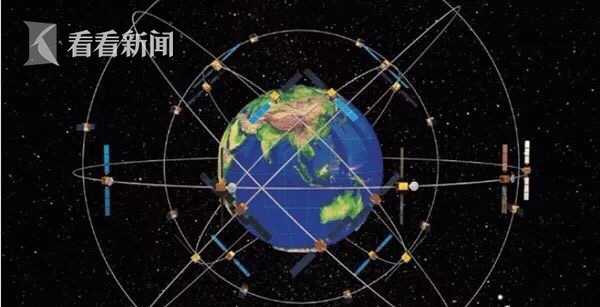
Short-term memory, long-term memory. Cognitive psychology regards memory as the process of coding, storing and extracting input information by the human brain. Memory is divided into three systems: instantaneous memory, short-term memory and long-term memory, which is based on the different ways of encoding, storing and extracting information, as well as the different length of information storage time.
What are the three memory systems: memory is also regarded as the process of the human brain encoding, storing and extracting input information, and according to the different ways of coding, storing and extracting information, as well as the different length of information storage time, memory is divided into instantaneous memory, short-term memory and long-term memory. A system.
What are the three memory systems? According to the different ways of encoding, storing and extracting information, and the different length of information storage time, memory is divided into three systems: instantaneous memory, short-term memory and long-term memory.
The three stages of memory are sensory memory, short-term memory and long-term memory. Sensory memory: Sensory memory refers to the information we receive through various sensory organs, such as vision, hearing, touch, taste and smell.
What are the three memory systems? According to the different ways of coding, storage and extraction of information, and the different length of information storage time, memory is divided into instantaneous memory, short-term memory and long-term memory. Remember the three systems.
The coding method of instantaneous memory, that is, the way instantaneous memory remembers information, is the image of external stimuli. Because the information of instantaneous memory is first registered in the sensory channel in the form of sensory images, instantaneous memory has a distinct image. The capacity of instantaneous memory is large, but the retention time is very short.
Perception is the cognitive process of giving meaning through information. ( 2) Working memory. It is the memory of processing and encoding information in the human brain within a minute. The holding time is about 5 seconds to 1 minute. Short-term memory also includes direct memory and working memory.

Weber's score), which is only applicable to medium-intensity stimuli, which is different from the Weber's score of sensory organs (2) Fechner's Law: 1860, using the differential threshold as the unit of sensation, a stimulus was measured. The difference threshold contained is believed to be the psychological intensity caused by this stimulus.
The concept of memory is the psychological process of accumulating, preserving and extracting individual experience in the mind.From storing into the brain to extracting and applying again, this complete process is collectively called memory.
Long-term memory refers to the memory maintained for more than a minute after external stimuli appear in a very short time. Features: The capacity of memory is unlimited, whether it is the type or quantity of information. Coding Semantic coding: Use words to process information and organize coding according to the meaning of the material.
Memory and memory process Definition: It is the reaction of past experience in the mind. Past experience refers to the perception of things, thinking about problems, the emotional experience caused by things, and the actions that have been carried out in the past. Function: It is the root of wisdom and the cornerstone of psychological development.
Binance download-APP, download it now, new users will receive a novice gift pack.
Short-term memory, long-term memory. Cognitive psychology regards memory as the process of coding, storing and extracting input information by the human brain. Memory is divided into three systems: instantaneous memory, short-term memory and long-term memory, which is based on the different ways of encoding, storing and extracting information, as well as the different length of information storage time.
What are the three memory systems: memory is also regarded as the process of the human brain encoding, storing and extracting input information, and according to the different ways of coding, storing and extracting information, as well as the different length of information storage time, memory is divided into instantaneous memory, short-term memory and long-term memory. A system.
What are the three memory systems? According to the different ways of encoding, storing and extracting information, and the different length of information storage time, memory is divided into three systems: instantaneous memory, short-term memory and long-term memory.
The three stages of memory are sensory memory, short-term memory and long-term memory. Sensory memory: Sensory memory refers to the information we receive through various sensory organs, such as vision, hearing, touch, taste and smell.
What are the three memory systems? According to the different ways of coding, storage and extraction of information, and the different length of information storage time, memory is divided into instantaneous memory, short-term memory and long-term memory. Remember the three systems.
The coding method of instantaneous memory, that is, the way instantaneous memory remembers information, is the image of external stimuli. Because the information of instantaneous memory is first registered in the sensory channel in the form of sensory images, instantaneous memory has a distinct image. The capacity of instantaneous memory is large, but the retention time is very short.
Perception is the cognitive process of giving meaning through information. ( 2) Working memory. It is the memory of processing and encoding information in the human brain within a minute. The holding time is about 5 seconds to 1 minute. Short-term memory also includes direct memory and working memory.

Weber's score), which is only applicable to medium-intensity stimuli, which is different from the Weber's score of sensory organs (2) Fechner's Law: 1860, using the differential threshold as the unit of sensation, a stimulus was measured. The difference threshold contained is believed to be the psychological intensity caused by this stimulus.
The concept of memory is the psychological process of accumulating, preserving and extracting individual experience in the mind.From storing into the brain to extracting and applying again, this complete process is collectively called memory.
Long-term memory refers to the memory maintained for more than a minute after external stimuli appear in a very short time. Features: The capacity of memory is unlimited, whether it is the type or quantity of information. Coding Semantic coding: Use words to process information and organize coding according to the meaning of the material.
Memory and memory process Definition: It is the reaction of past experience in the mind. Past experience refers to the perception of things, thinking about problems, the emotional experience caused by things, and the actions that have been carried out in the past. Function: It is the root of wisdom and the cornerstone of psychological development.
 Binance app
Binance app
512.12MB
Check OKX Wallet login
OKX Wallet login
718.28MB
Check OKX Wallet login
OKX Wallet login
289.15MB
Check Binance Download for PC
Binance Download for PC
468.21MB
Check Binance download iOS
Binance download iOS
487.43MB
Check Binance app
Binance app
828.21MB
Check Binance app
Binance app
239.85MB
Check Binance login App
Binance login App
526.19MB
Check OKX Wallet APK
OKX Wallet APK
737.13MB
Check OKX Wallet download
OKX Wallet download
928.92MB
Check Binance Download for PC Windows 10
Binance Download for PC Windows 10
696.74MB
Check OKX Wallet APK
OKX Wallet APK
197.95MB
Check OKX Wallet extension
OKX Wallet extension
524.21MB
Check Binance app
Binance app
859.64MB
Check Binance US
Binance US
443.24MB
Check Binance APK
Binance APK
331.96MB
Check OKX Wallet download
OKX Wallet download
429.81MB
Check OKX Wallet app download for Android
OKX Wallet app download for Android
967.98MB
Check OKX Wallet app
OKX Wallet app
879.44MB
Check Binance wikipedia
Binance wikipedia
535.61MB
Check Binance APK
Binance APK
942.72MB
Check Binance login
Binance login
199.66MB
Check Binance login
Binance login
351.57MB
Check OKX app
OKX app
724.75MB
Check OKX app
OKX app
276.57MB
Check OKX Wallet app
OKX Wallet app
612.51MB
Check OKX Wallet download
OKX Wallet download
138.91MB
Check Binance US
Binance US
136.42MB
Check Binance wikipedia
Binance wikipedia
665.36MB
Check Binance app
Binance app
874.78MB
Check Binance US
Binance US
177.83MB
Check Binance login
Binance login
597.12MB
Check Binance market
Binance market
636.53MB
Check OKX Wallet
OKX Wallet
313.72MB
Check Binance login
Binance login
572.32MB
Check OKX Wallet to exchange
OKX Wallet to exchange
926.22MB
Check
Scan to install
Binance download to discover more
Netizen comments More
2688 山高水低网
2025-01-10 13:42 recommend
715 牛蹄之鱼网
2025-01-10 13:40 recommend
121 渺无踪影网
2025-01-10 13:20 recommend
104 尔虞我诈网
2025-01-10 13:07 recommend
1623 无所畏忌网
2025-01-10 12:41 recommend